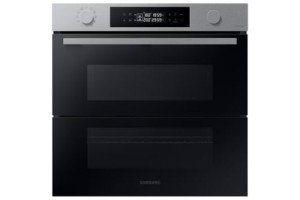The Integrated Cooker: A Comprehensive Guide to Modern Cooking Solutions
The evolution of kitchen appliances has reinvented cooking and cooking methods, making meal preparation more efficient and enjoyable. Amongst these developments, the integrated cooker stands apart as a flexible and space-saving addition to modern cooking areas. This post explores the various elements of integrated cookers, including types, benefits, features, and a comparison with traditional cooking techniques.
What is an Integrated Cooker?
An integrated cooker is a compact cooking appliance that combines several cooking functions into one system. Frequently built into kitchen cabinets, these cookers are designed to save space while enhancing kitchen looks. They normally integrate a variety of performances, such as baking, barbecuing, steaming, and even pressure cooking.
Key Features of Integrated Cookers
- Multi-Functionality: Integrated cookers can carry out various cooking jobs, getting rid of the requirement for several appliances.
- Space-Saving Design: These cookers fit flawlessly into kitchen systems, making them ideal for modern homes with minimal area.
- Advanced Technology: Many integrated cookers come geared up with wise technology, such as programmable settings, touch-screen controls, and connection alternatives.
- Energy Efficiency: Built with contemporary products and style, they frequently consume less energy compared to traditional cooking methods.
Kinds Of Integrated Cookers
The marketplace provides various types of integrated cookers, each with its unique set of features and performances. Here are the most typical types:
| Type | Description | Example Use |
|---|---|---|
| Built-in Ovens | Ovens that are suited wall units or cabinetry | Baking bread, roasting meats |
| Induction Hobs | Cooktops that utilize electro-magnetic energy to heat pots and pans | Quickly boiling water, sautéing |
| Steam Ovens | Appliances that prepare food using steam for healthier results | Steaming veggies, fish |
| Microwave Ovens | Integrated microwaves for fast heating and cooking | Reheating leftovers, making popcorn |
| Mix Ovens | A mix of standard and steam cooking technologies | Baking while making sure moisture retention |
Benefits of Using Integrated Cookers
Integrated cookers offer a host of benefits over traditional cooking tools. Below are some of the essential benefits:
- Space Efficiency: Ideal for compact kitchen areas, integrated cookers utilize vertical areas efficiently.
- Streamlined Cooking Process: With multiple functions readily available, users can shift from one cooking approach to another with very little effort.
- Improved Aesthetics: Many integrated cookers can be found in smooth designs that blend well with contemporary kitchen decoration.
- Enhanced Cooking Control: Programmable features enable accurate cooking, ensuring much better meal results.
Integrated Cookers vs. Traditional Cooking Appliances
When considering meal preparation choices, it is vital to weigh the benefits of integrated cookers against conventional cooking appliances. Below is a comparison chart:
| Feature | Integrated Cooker | Standard Appliances |
|---|---|---|
| Space Efficiency | High | Lower |
| Multi-Functionality | Yes | No (requires multiple appliances) |
| Energy Consumption | Typically lower | Can be higher |
| Cooking Speed | Faster (specifically with induction) | Varies |
| Style | Modern and sleek | Varies commonly |
The integrated cooker is a forward-thinking home appliance that satisfies the demands these days's hectic way of life. integrated gas oven and hob packages of functions, space-saving style, and sleek aesthetics make it a worthwhile financial investment for any modern-day kitchen.
For those seeking to conserve time, space, and effort in meal preparation, integrated cookers provide an excellent service that enhances the cooking experience while providing yummy, well-prepared meals.
Regularly Asked Questions (FAQs)
1. What is the typical rate of an integrated cooker?
The price of integrated cookers can vary extensively, generally ranging from ₤ 500 to ₤ 3,000 depending upon functions, brand name, and size.
2. How much upkeep do integrated cookers require?
Upkeep frequently consists of regular cleansing of surfaces and examining for any software application updates if they feature smart technology. It's suggested to follow the producer's guidelines.
3. Can I change my existing oven with an integrated cooker?
Yes, integrated cookers can frequently change conventional ovens, but it is necessary to seek advice from with an expert to make sure compatibility with your kitchen design.
4. Are integrated cookers difficult to set up?
Installation can be simple for those with DIY experience. Nevertheless, employing a qualified technician is suggested to guarantee proper setup.
5. Who benefits most from utilizing an integrated cooker?
Households, time-pressed people, and those living in compact houses particularly gain from the multi-functionality and space-saving design of integrated cookers.
In this age of benefit and effectiveness, integrated cookers are redefining how we approach cooking. Whether you are a knowledgeable chef or a cooking beginner, integrating this effective appliance into your kitchen can substantially enhance your culinary experience.

